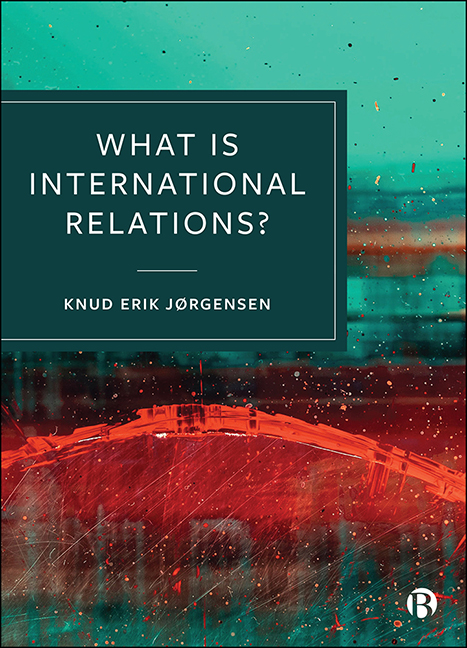Book contents
- Frontmatter
- Contents
- List of Figures, Tables and Box
- List of Abbreviations
- Preface
- Introduction
- 1 What is the Subject Matter?
- 2 What are the Human Sciences?
- 3 What is a Discipline?
- 4 What is Theory?
- 5 What is Disciplinary Diversity?
- 6 What is Community?
- 7 Globalizing International Relations?
- Conclusion
- Notes
- References
- Index
1 - What is the Subject Matter?
Published online by Cambridge University Press: 13 May 2022
- Frontmatter
- Contents
- List of Figures, Tables and Box
- List of Abbreviations
- Preface
- Introduction
- 1 What is the Subject Matter?
- 2 What are the Human Sciences?
- 3 What is a Discipline?
- 4 What is Theory?
- 5 What is Disciplinary Diversity?
- 6 What is Community?
- 7 Globalizing International Relations?
- Conclusion
- Notes
- References
- Index
Summary
Introduction
Subject matter matters in an almost existential fashion, not least because scholars conventionally insist on using it to define the discipline. Hence disciplines are frequently defined by the subject areas they cover and perhaps for good reasons. Think about it. Within a discipline, it intuitively seems justified to expect a common understanding of what is under the microscope. Nonetheless, the subject matter in IR is one of the most hotly contested issues. In the words of Michael Cox (2005), editor of International Relations: ‘At a time when the discipline is split into ontological tribes who speak only to themselves, and in their own languages, it was refreshing to hear a scholar seeking to connect, even if the medium was “battle” ‘ (p. 337). Cox's assessment is widely shared and, as Christine Sylvester (2013) adds, ‘debate, once thought of as a disciplinary sport, is now mostly confined to within-camp issues’ (p. 615).
In the contested issue of subject matter, two main trends stand out: ‘narrowers’ versus ‘wideners’. The two first sections of the chapter examine narrow and broad understandings of the subject matter. The challenge is not only that our answers to the question ‘What's under the microscope?’ evolve historically; that seems to apply to all scientific disciplines, and in the natural sciences it is one of the main premises of Thomas Kuhn's well-known idea about paradigms and paradigmatic shifts. By contrast, within the scientific study of international relations, the issue triggers not successive paradigm shifts but rather fundamental disagreement about what the discipline is and what it should be about. Indeed, social scientists triggered Kuhn's hunch about the significance of paradigms. Herecalls how spending a year
in a community composed predominantly of social scientists confronted me with unanticipated problems about the differences between such communities and those of the natural scientists among whom I had been trained. Particularly, I was struck by the number and extent of the overt disagreements between social scientists about the nature of legitimate scientific problems and methods. (Kuhn, 1962/1970: viii)
- Type
- Chapter
- Information
- What Is International Relations? , pp. 11 - 29Publisher: Bristol University PressPrint publication year: 2021

